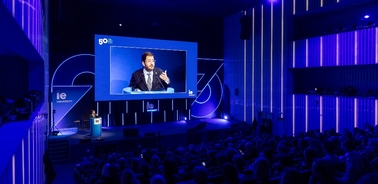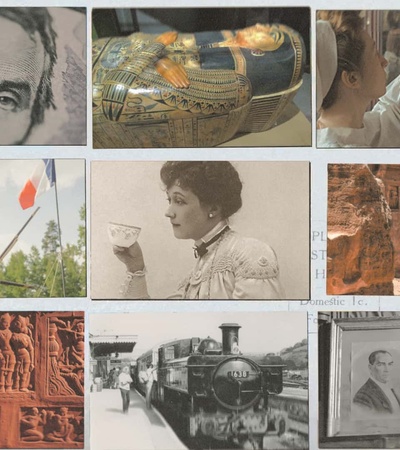IE University announces the launch of the IE School of Humanities to train leaders in humanities, technology and management

IE School of Humanities is set to launch a bachelor’s degree in Humanities and a dual degree in Business Administration and Humanities in September 2024, and with the backing of UNESCO as an academic partner.
IE University has announced the launch of the IE School of Humanities, a new school at the organization that aims to promote education and research to train leaders in humanities, management and technology to address the complex challenges of the business world. The IE School of Humanities is set to launch a bachelor’s degree in Humanities and a dual degree in Business Administration and Humanities in September 2024, both 100% in English and with the backing of UNESCO as an academic partner.
The new IE School of Humanities is a milestone for IE University. The organization now has six schools: IE Business School, IE School of Science and Technology, IE Law School, IE School of Politics, Economics and Global Affairs, IE School of Architecture and Design, and the newly founded IE School of Humanities.
The IE School of Humanities will be opening its doors in September 2024, with a bachelor’s degree in Humanities and a dual degree in Business Administration and Humanities. In the bachelor’s degree in Humanities, students will also be able to choose between two specializations, Art and Cultural Management or Digital Tools, in the final phase of the program.
UNESCO, an outstanding academic partner
The Bachelor in Humanities has the academic backing of UNESCO, an organization that is working together with the School to design content and provide professors who will be enriching the student experience. The two organizations will be focusing on areas such as the ethics of artificial intelligence, and social transformations driven by technology and innovation, as well as initiatives designed to fast-track careers and develop joint applied research projects.
"The global job market needs talented people with outstanding analytical and critical thinking, communication and empathy skills. It needs individuals who have the ability to learn from history, philosophy, literature and art, as well as from technology and management, to comprehend and tackle global challenges and opportunities. IE University has extensive experience in business management, technology and international governance. This new School reinforces our commitment to humanities that look to the future," said Manuel Muñiz, Provost of IE University, for whom History, Philosophy and Anthropology "are essential disciplines to address universal issues in a society in constant flux as a result of the impact of the technological revolution."
"Studying these areas creates global management profiles that can anticipate and respond to the new demands of the labor market and cover new business positions which have yet to be identified."
Manuel Muñiz, Provost of IE University
The experts on the IE School of Humanities faculty include internationally renowned professors and researchers such as:
- María José Ferrari (Ph.D., Columbia University, USA), an expert in European Intellectual History and EU language and educational policies.
- Goretti González (Ph.D., Harvard University, USA), a specialist in cultural and literary production in early modern Spain.
- Anna Jabloner (Ph.D. Chicago University, USA *starting as of January 2024), who is a sociocultural anthropologist, and researches science from a sociopolitical perspective.
- Ted Lechterman (Ph.D., Princeton University, USA), a philosopher specializing in applied ethics through the lens of political philosophy.
- Regina Llamas (Ph.D., Harvard University, USA), is an expert in southern Chinese drama and the Qing commentarial dramatic tradition.
- Patrick de Oliveira (Ph.D., Princeton University, USA) is an expert in the history of modern France and of technology, urban history and exchanges between France and Latin America.
- Rolf Strom-Olsen (Ph.D., Northwestern University, USA) specializes in European history. His main research areas are ritual in European courts and state formation at the end of the Middle Ages and the start of the Modern Era.
- Susana Torres (Ph.D., Universidad Complutense, Madrid, Spain) is an expert in Slavic Studies. She is also a senior researcher at the Ukrainian Research Institute at Harvard University, where she is working on a Digital Humanities project (MAPA).
